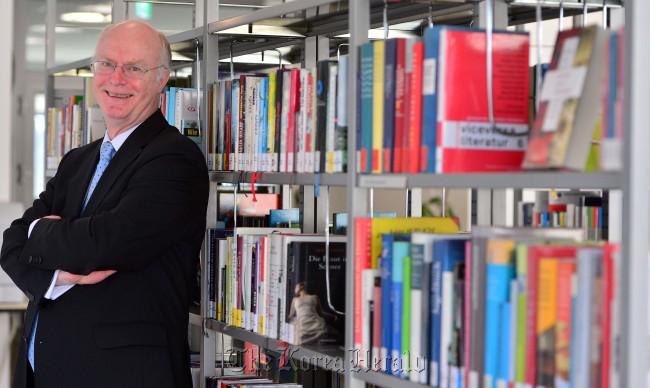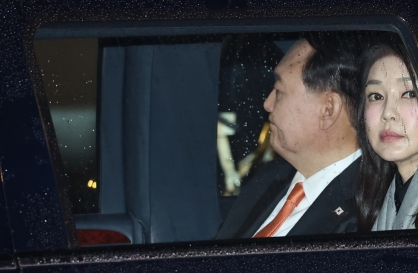Goethe Institut a nexus for German, Korean culture
Reopening on March 6, the German cultural institute aims to solidify ties between Korea, Germany
By Korea HeraldPublished : Feb. 28, 2013 - 19:53
After two years of renovation, the Seoul office of Goethe Institut, or the German Cultural Institute, is reopening at the cozy building on the hillside of Namsan Mountain in Seoul on March 6.
The institute, a central place for German-enthusiasts in Korea, is holding a four-day event to mark the opening. Cultural highlights include a video-mapping projection by local artist group, Urbantainers, on March 6; exhibition by artist Ahn Kyu-chul; jam concert of samulnori master Kim Duk-soo and German jazz duo Sternklar on March 7; as well as dance performance by noted Korean dancer Ahn Eun-mee, House-Dance group and DJ Dewalta.
The building features a new concert hall that can seat more than 150 people at a time, exhibition spaces and newly furbished classrooms, said Stefan Dreyer, executive director of the institute.
The institute, a central place for German-enthusiasts in Korea, is holding a four-day event to mark the opening. Cultural highlights include a video-mapping projection by local artist group, Urbantainers, on March 6; exhibition by artist Ahn Kyu-chul; jam concert of samulnori master Kim Duk-soo and German jazz duo Sternklar on March 7; as well as dance performance by noted Korean dancer Ahn Eun-mee, House-Dance group and DJ Dewalta.
The building features a new concert hall that can seat more than 150 people at a time, exhibition spaces and newly furbished classrooms, said Stefan Dreyer, executive director of the institute.

“There are more and more German artists, producers and actors who have a specific interest in Korea, which have to do with the quality of festivals and curators, and the overall contemporary art scene. Korean art and culture are not only about hallyu but they have so many aspects,” said Dreyer in an interview with The Korea Herald on Thursday.
“Also, there is a growing demand for co-production and other forms of exchange.”
And the Goethe Institut has been a leader in the field of cultural exchange. In 1994, it supported a Korean adaptation of German musical “Linie 1,” which was staged at a small theater in Seoul. The original plan was for a few weeks’ run but it became so popular that it was moved to larger performance halls and eventually became the country’s longest-running musical. The story of “Jihacheol Ilhoseon” or “Subway Line No. 1,” became a local legend.
“We are planning some more events of the kind. This year, we are supporting ‘Heterotopia’ choreographed by William Forsythe in April and premiering the winning piece of the composition competition we conducted for the Tongyeong International Music Festival,” he said.
Dreyer said he has sensed something extraordinary from the Korean audience, which amuses not only him but all others. “They are very honest with their impression. The clapping, the applause, the shouts and other things are amazing. (The) Korean audience is really encouraging,” he said.
And the affection seems mutual. Dreyer noted that a growing number of Koreans are showing interest in Germany, its culture and language.
“It must be because of Germany was seen as ‘powerful’ in the time of the economic crisis in Europe. More than 4,000 people enroll at the Goethe Institut in Seoul alone every year and a considerable number of them express their passion about German culture ― the music, literature and others,” he said.
“I hope, after visiting the Goethe Institut, people will find many facades of Germany. I hope they will also find Germans less stiff and strict ― which are the usual images they have of us ― and instead understand that Germans can be quite funny and interesting in many different aspects,” he said with a smile.
By Bae Ji-sook (baejisook@heraldcorp.com)
-
Articles by Korea Herald



![[AtoZ Korean Mind] Does your job define who you are? Should it?](http://res.heraldm.com/phpwas/restmb_idxmake.php?idx=644&simg=/content/image/2024/05/06/20240506050099_0.jpg&u=)















![[K-pop's dilemma] Is Hybe-Ador conflict a case of growing pains?](http://res.heraldm.com/phpwas/restmb_idxmake.php?idx=642&simg=/content/image/2024/05/07/20240507050746_0.jpg&u=)